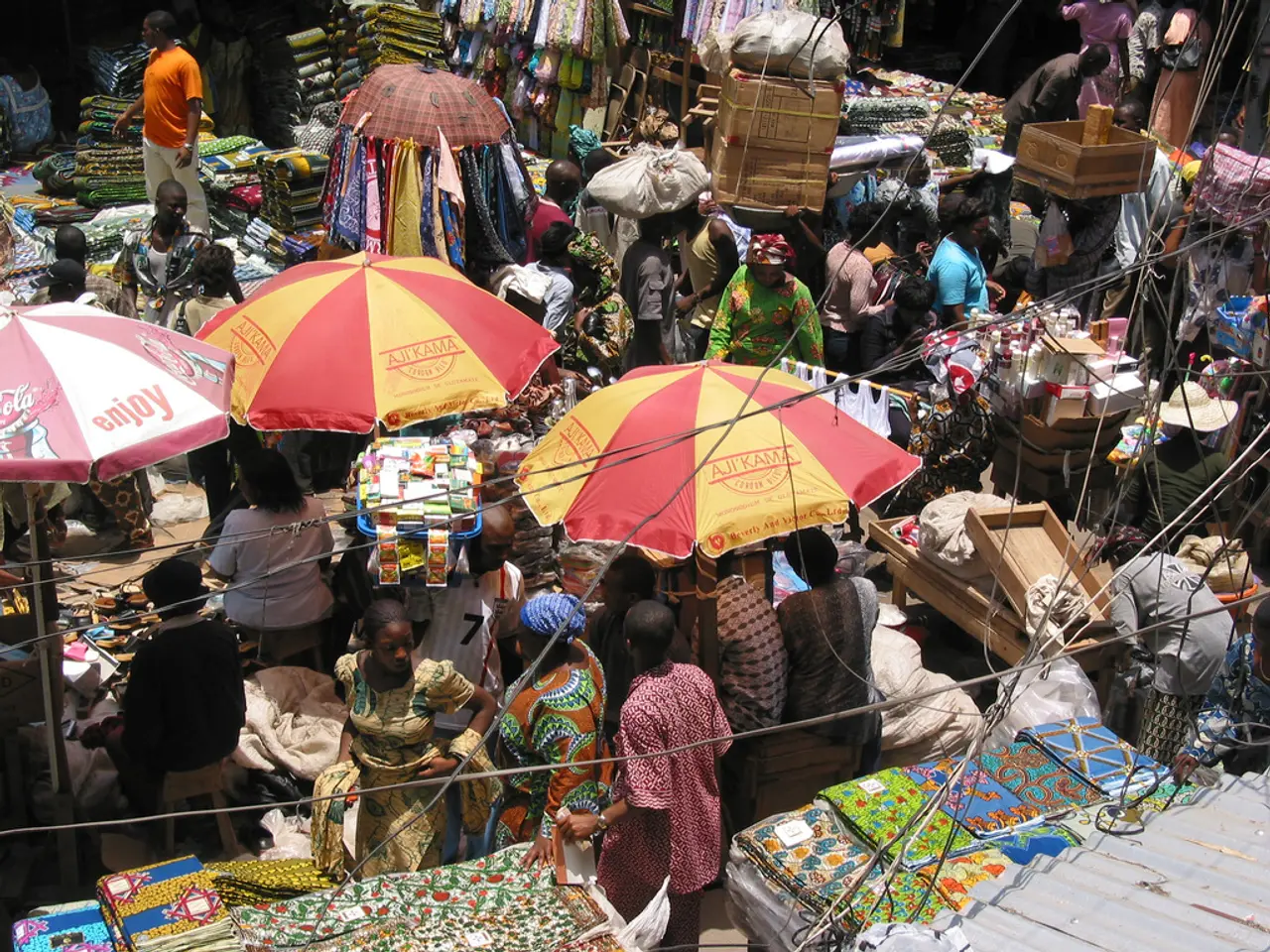Internet Raffles Provide Essential Assistance Amidst Pandemic, as Retail Sales Suffer Due to Coronavirus
In the midst of the ongoing COVID-19 pandemic, various U.S. states have turned to online lottery sales to maintain or increase revenue, as physical venues closed due to lockdowns and restrictions.
This shift to digital platforms has been particularly beneficial for states like Georgia, Kentucky, Michigan, New Hampshire, North Carolina, Pennsylvania, Virginia, and Illinois. These states have seen an increase in revenue during the pandemic, largely due to the surge in internet sales [3].
One of the key advantages of this digital transition has been the continuation and growth of lottery revenue despite the closures of physical retail locations. Online platforms have allowed participation from home, ensuring that lottery games remain accessible [3].
In addition, the increased demand for online lottery games has led to an expansion of the customer base and overall sales growth. With more people spending their leisure time at home during lockdowns, online ticket platforms have catered to this increased interest [3].
Furthermore, the revenue generated from online lotteries has been used to support community and public programs, including COVID-19 relief and recovery efforts. This has helped enhance local resilience during these challenging times [5].
Traditionally, states allocate lottery proceeds to various causes, with a focus on education, public health and safety programs, community and charitable projects, and administrative costs of the lottery operations [5]. In states like Pennsylvania and Michigan, significant shares of lottery revenue are earmarked for education and public services, reinforcing social safety nets during the pandemic [5].
However, not all states have seen the same level of success. Massachusetts, for example, has been hit hard by the pandemic, with more than 1,800 of its 7,500 lottery retailers closed and total lottery sales last week down 33 percent [1]. Keno, one of the lottery's most profitable games, has dropped over 53 percent in Massachusetts [2].
Despite these challenges, the online lottery model has provided a crucial revenue lifeline and community funding source during COVID-19. By enabling continued lottery participation in restricted conditions and supporting vital public programs, online lotteries have played a significant role in helping states navigate the economic impact of the pandemic [3][5].
References:
- Boston Globe
- MassLive
- National Council on Problem Gambling
- Washington Post
- Pew Charitable Trusts
Read also:
- Understanding Hemorrhagic Gastroenteritis: Key Facts
- Trump's Policies: Tariffs, AI, Surveillance, and Possible Martial Law
- Expanded Community Health Involvement by CK Birla Hospitals, Jaipur, Maintained Through Consistent Outreach Programs Across Rajasthan
- Abdominal Fat Accumulation: Causes and Strategies for Reduction







